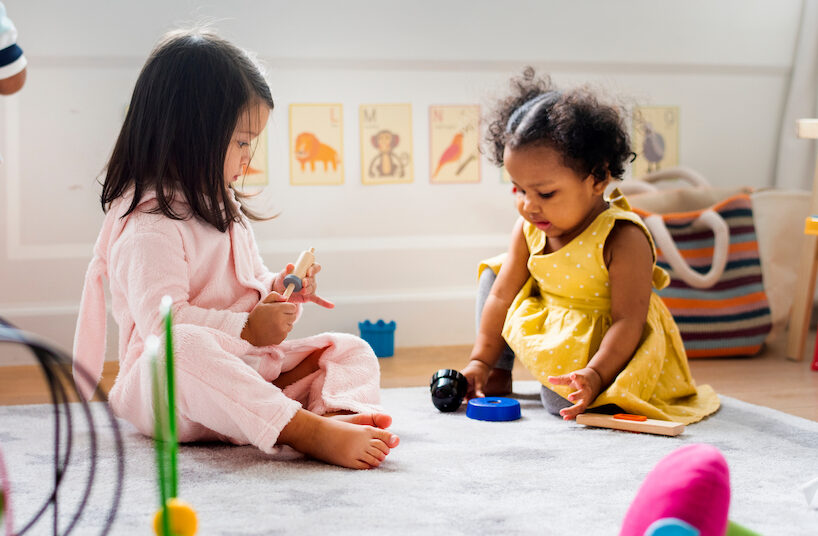Self-directed play is an important part of child development and many parents want to get involved. It is important to play games with your child, but sometimes it is best to take a step back. Adults can often swoop in, develop games with rules that make sense to us, then ensure that all children involved have a clear understanding of what the ground rules are. However, it’s important that your children learn these skills and abilities by themselves too. You might be surprised at how well your child can handle interpersonal disagreements and create imaginative games when given the chance to do so independently.
Take a step back and watch what your child can do when playing a game that is safe and unlikely to break any valuable items, and provide the toys your child needs to play without constant instruction from adults.
Invest In a Few Basic Toys
Some classic toys are ideal for self-directed play. Have a few balls, blocks, puppets, dress up items, and other items that can inspire childhood creative genius. Find a space where children can play outdoors on nice days. Once your child has an idea, let him or her run with it.
Resist the Urge to Conduct Psychoanalysis
Parents often get nervous when children play games that are a little goofy. It is important to not try to analyze the meaning behind this play, the words they used or why your child decided to bury a toy doll in the sandbox. Children have a wild imagination, and letting them act in a way that may seem silly to you lets them grow.
It is also common for children to use language that is a little off-track or out of context as they do not understand its meaning. If your child uses a word incorrectly, ask them if they know what the word means or put it into a sentence for them as an example. There is a high likelihood that your child thinks the word means something different or does not know what it means at all. One of the easiest ways to discourage self-directed play is to give your child the impression that their play makes you anxious.
Be Patient When Supervising Play
Give your child time to figure things out, how to put a certain item together or how to explain a game without your help. You can find things quicker and assemble things better; after all, you are the adult. Let your child take the lead, and provide help when asked. It can be empowering for your child to see how much he or she can do without your constant assistance.
Encouraging self-directed play can be as easy as providing basic toys and a space to play in. Then, take a step back. You might be amazed at what your child can accomplish.




